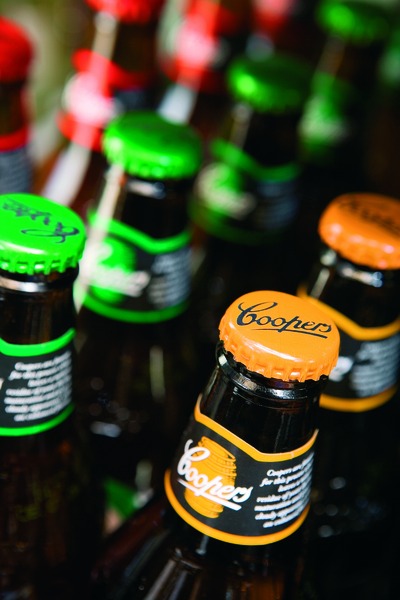Recycling saves money for Coopers, raises it for charity
Friday, 13 September, 2013
In 2006, Coopers Brewery introduced a program to recycle materials such as cardboard, glass, aluminium and old machinery that were being disposed of at a cost. Since then, recycling has raised more than $380,000 for the Coopers Brewery Foundation.

The foundation is the philanthropic arm of Cooper Brewery and makes quarterly grants to Australian charitable organisations with recognised strengths in medical research and healthcare, youth education and aged care, and in fostering family and community support.
Foundation Chair and Coopers Company Secretary Melanie Cooper said the foundation had now raised and distributed more than $2 million to a total of 120 charities for 144 individual projects, with recycling providing a valuable contribution to the funds.
“The recycling program was initially introduced as a cost-saving measure,” Cooper explained.
“We were spending a significant amount of money to dispose of waste material to landfill and it was likely that these charges were going to rise in the future. We saw recycling as one way of reducing these costs.
“However, it quickly became obvious that the waste had value and we could raise money by recycling it. We decided that any money raised in this way should go to the foundation.”
The foundation is also funded by non-core income-generating activities at the brewery, including the proceeds of tours, speaker fees for any Cooper family members and concerts at the brewery, as well as an annual golf day and donations from individuals and companies. Coopers covers the cost of the foundation, with many brewery staff donating time and services to help raise funds.
Cooper said the recycling program has been “enthusiastically embraced by everyone at the brewery and we are delighted by how much it has raised”. She encourages other businesses to consider similar schemes.
Turning high-emissions waste into fertiliser: study
Research from UNSW could transform waste products into fertiliser while cleaning up waterways and...
Project turns vineyard waste into reusable timber solution
A pilot project to reuse vineyard trellis posts has been launched in South Australia, marking a...
How Australia can increase its circularity rate
An expert said the solution could lie in developing onshore processing plants and creating...








